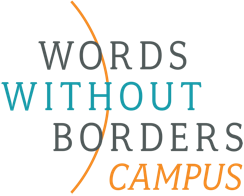Why Teach Translation?
Posted on September 21, 2020

Most students won’t grow up to become translators, so why should we teach translation? Gitanjali Patel and Jessie Spivey of Shadow Heroes, a UK-based organization that runs creative translation workshops for students, wrote an essay for Words Without Borders about the educational benefits of learning about translation.
“We believe in the potential of translation to reframe both what we learn and how we learn.”
Students are often taught that there’s only one correct answer to a given problem, Patel and Spivey write. In translation, however, the same text can be translated successfully in a number of ways. For students, this can be a liberating concept, one that helps them move away from the binary thinking of “right and wrong” and toward the knowledge that there are countless ways to approach a challenge.
“Young people are taught to value certain languages over others in a way that echoes global power structures.”
One of Shadow Heroes’ main objectives is to de-center Western Europe and European languages, which tend to be valued more highly (at least in the Anglophone world) than languages from other geographical regions. In presenting texts from languages like Arabic, Turkish, and Japanese, Shadow Heroes helps students engage with cultural contexts that might be new to them—and, in doing so, reconsider their preconceptions. Translation workshops are also a useful tool for English-language learners who speak a non-Western language, helping them to build self-confidence and recognize their multilingualism as a valuable skill.
For more about teaching translation, and to read a sample of student work from a Shadow Heroes workshop, check out the original post here.
By Nina Perrotta




